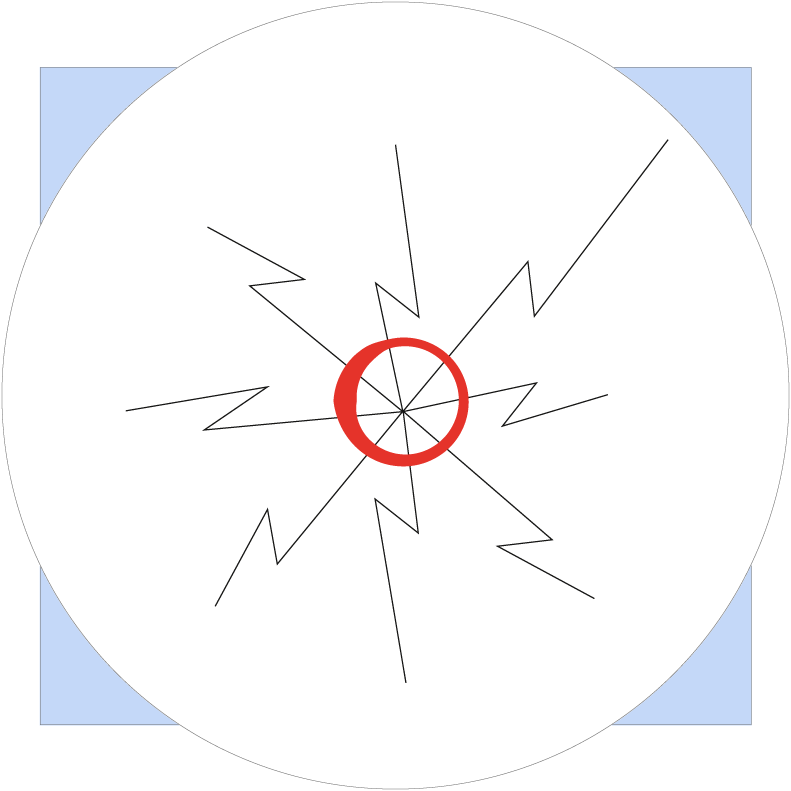Menopause Irritability
Your hormones change during menopause. Estrogen and progesterone decline, which influences a number of brain chemicals like “calming” GABA, “rewarding” dopamine, “energizing” norepinephrine, and “mood boosting” serotonin. When your hormones change, so do these other brain chemicals, causing menopausal symptoms like anger and irritability. 52% WOMEN IN MENOPAUSE EXPERIENCE IRRITABILITY

52%
WOMEN IN MENOPAUSE EXPERIENCE IRRITABILITY
Is this normal?
Hell yes. During perimenopause and menopause, irritability, sadness, anger, or anxiety — or swinging from one emotional zone to another — are very real.
What can you do?
Stop, sit, breathe, and take stock of what’s going on. Write down what you’re feeling. Talk it out with friends or seek a support group. Speak to a doctor about how you’re feeling. And most importantly, don’t suffer alone.
Stay tuned for more offerings to help with mood symptoms, coming soon from Alloy.

FAQ
What's the connection between menopause and irritability?
Irritability is a symptom of menopause. Sometimes it feels more like rage. And a lot of the time it's over things that normally might not bother you so much. It's extreme anger over things like losing your cell phone, or when the car in front of you takes a little bit too long to go at a green light. Are any of these things ringing a bell? We thought so.
What causes menopause irritability?
Estrogen and progesterone influence brain chemicals including GABA, which calms you down, dopamine and serotonin, two of the “happy” chemicals, and norepinephrine, which gives you energy. When estrogen and progesterone levels decrease during menopause, so does their role in helping you release these chemicals. And, it can feel pretty terrible.
As hormone levels fluctuate, menopausal women tend to experience heightened stress, mood swings, and irritability. You may find yourself lashing out at your partner or your kids when they leave dishes in the sink or forget to turn off the lights when they leave the room.
That definitely sounds like me. Is this a normal menopause symptom?
Menopause irritability is totally normal. In addition to physical symptoms like hot flashes or weight gain, there are many emotional changes during menopause, including sadness, anger, anxiety, depression, mood swings, and, yes, irritability. Over half of women in menopause (51.6% of them, to be more precise) experience this symptom. While menopause irritability manifests in some people as just being mildly annoyed, for others it’s, it’s way more intense. Wherever you fall on the spectrum, you’re not alone-even if it feels like you are.
So, what can I do about it?
Just because menopause irritability is normal, doesn’t mean it doesn’t totally suck. Luckily, there are things you can do about it.
First, breathe. Sounds simple, but it’s not. When you’re feeling full of rage and out of control, breathe. Take stock of what’s going on, and think about what you can do right now, in this moment, to feel calm. If what you need is doable, do it. If it’s not, what’s the next best thing? What can you do for yourself right now to make it through this moment to the other side?
When things are less intense, write down some tactics to help yourself when these feelings arise. Having a plan can be really helpful. It also helps to talk with a partner, friends, or to find a support group. Being surrounded by people who “get it” can go a long way.
During this new stage of your life, it's especially important that you prioritize your health and well-being. Commit to lifestyle choices that could potentially help keep your hormone levels and emotional symptoms in check. Your mental health and diet are closely related, so make sure to eat nutritious meals, stay hydrated, and cut back on alcohol whenever possible. Exercising regularly, practicing meditation, and getting enough sleep are other lifestyle changes you can make to better manage the menopause transition.
Lastly, some of the negative effects of hormonal fluctuations, including irritability, anxiety, and mood swings, can be improved with menopausal hormone treatment. While we can’t promise it will make your kids remember to turn the lights off when they leave, it may be able to help you handle the situation in a way you’re happier with. Check out Alloy's hormonal solutions on our product page.



















